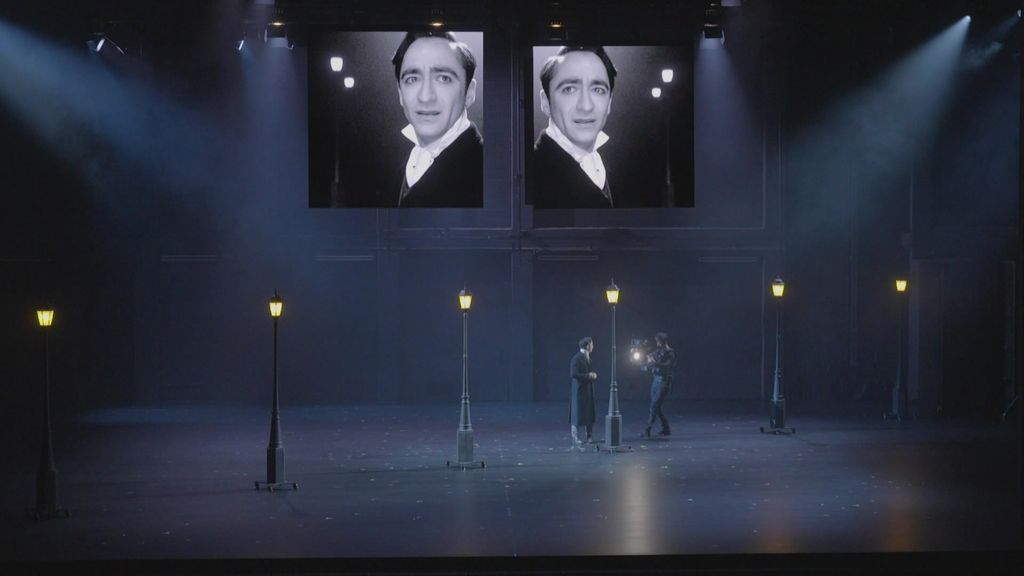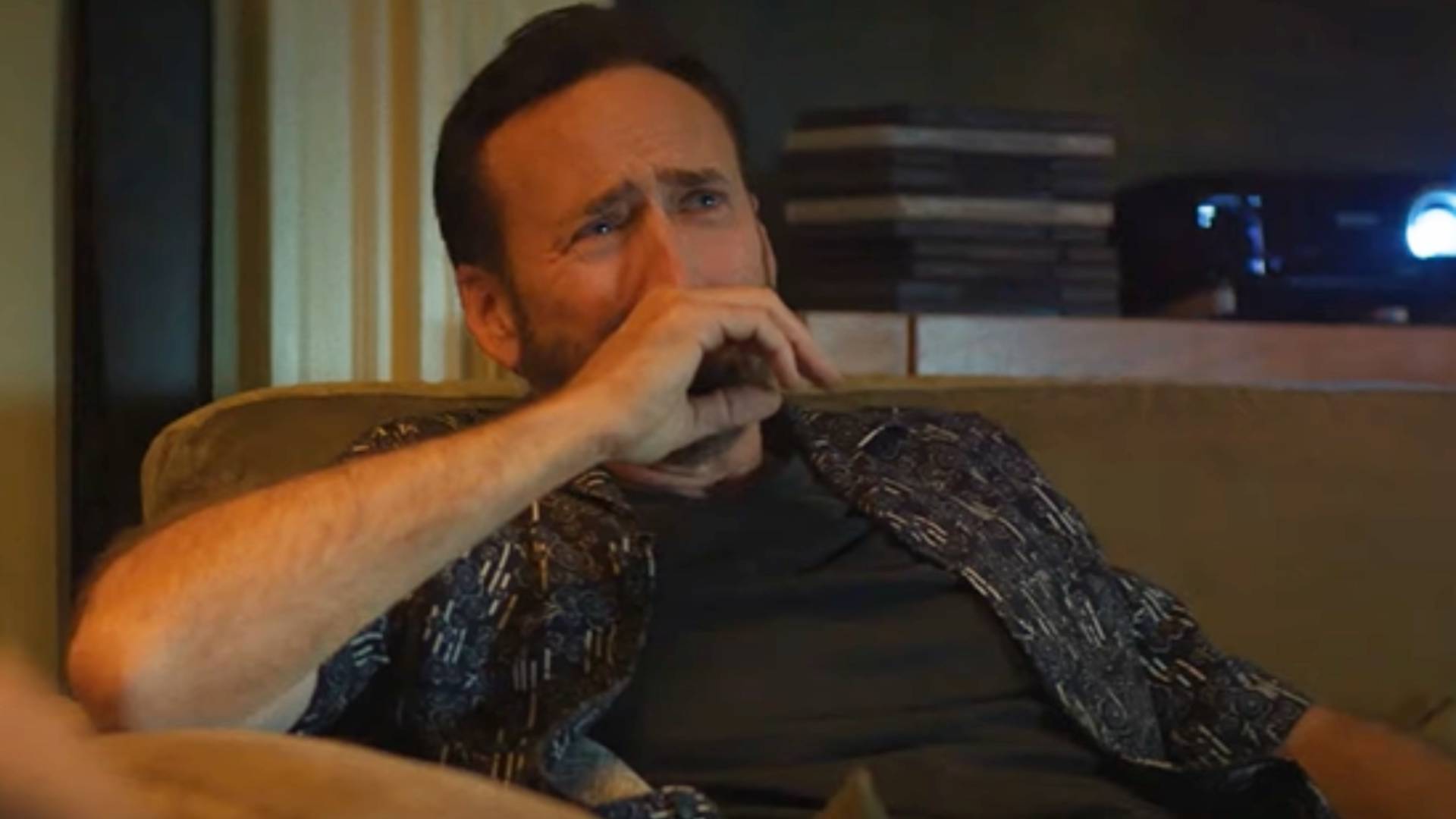The Varnished Culture's Thumbnail Reviews
Regularly added bite-sized reviews about Literature, Art, Music & Film.
Voltaire said the secret of being boring is to say everything.
We do not wish to say everything or see everything; life, though long is too short for that.
We hope you take these little syntheses in the spirit of shared enthusiasm.
Living

(Directed by Oliver Hermanus, 2022)
Well, this is a new idea for a story! A reserved and disciplined person of a certain age gets a terminal diagnosis and decides to LIVE before he shuffles off. Mr. Williams (Bill Nighy) is a decent enough chap but frosty (and is in fact referred to as ‘Mr. Zombie’) in a middle management civil service position*. The table of junior civil servants over which he presides (stiffly and politely, of course) is piled ridiculously high, with towers of aged paper and nothing ever gets done.
After the appropriately stiff upper-lipped scene with the specialist, Mr. Williams decides to go rogue. Having notified no-one of his intended absence from work (impossible for this character), he takes off to the seaside and goes out and about with a louche young chap (Tom Burke). He visits low dives and sings a nostalgic song (there was not a moist eye in the house)**. Naturally, and quite laughably, he then takes a lovely young lady (Aimee Lou Wood – who knows how to LIVE) out to lunch and astonishes her with his wisdom. She makes him giggle and think about LIVING.
Mr. Williams goes on to do a really good thing. He dies (not a spoiler). His erstwhile workmates look at each other meaningfully under their bowler hats and resolve to do better because frosty old Mr. Zombie did so when he decided to LIVE…
Have we left out any clichés? (The writers did not). Oh yes! (1) The Sir Humphrey types, grimacing at each other through the cigar-smoke in response to an eager young chap, who dashes into the room with a new idea which will help people of the lower classes LIVE; (2) the estranged son; (3) the disrespectful daughter-in-law and (4) the dead wife.
Bill Nighy does what he can with this trite, sentimental hash but it’s too subdued, too little, too late.
“His legacy? The most depressing playground ever…”
Soweto Gospel Choir

(Adelaide Fringe, Sunday 19 March 2023)
The Varnished Culture has seen a few choirs this season, but apart from being ordered to ‘Move’ at a cathedral show, nothing has been as kinetic as the Soweto Gospel Choir, appearing at ‘Gluttony’ in Rymill Park last night. With verve, colour, and in particular, motion, the group sang lustily and well, with minimal instrument backing (percussion, keyboard). You didn’t need to know the language to get the message of Hope, with some songs from their Grammy-winning album, Freedom, but it was refreshing to have some standards as well – Hallelujah and A Change is Gonna Come – in the joyous and friendly hour.


Celestial

(Adelaide Chamber Singers, Adelaide Festival, St Peter’s Cathedral, Adelaide, 15 March 2023)
10 pm. St Peter’s Cathedral. After a quick drink at the Cathedral Hotel, we took our pews to see and hear the 20-strong* Adelaide Chamber Singers perform liturgical and general choral works, medieval and contemporary, all paeans to the heavens, under expert conductor Christie Anderson. They were sublime; strong but subtle, and in both harmony and melody, they provided great clarity.
The beautiful vaulted interior of St Peters provided the stage from which the ensemble sallied forth, disported about various points of the cathedral (high altar, pulpit, along the aisles, and so on). The programme (set out in full below) ranged from two interesting takes on J.S. Bach pieces; Elgar’s traditional and magnificent Lux Aeterna; a gorgeous homage to Dante, We Beheld once Again the Stars; and a simple poem called Stars, which came alive as the group gathered before the pulpit and sang whilst accompanying themselves with a cumulative glass harp (see the picture at the foot of this post).
The ‘surround-sound’ really came home to this correspondent during the lush funereal poem, Do Not Stand at my Grave and Weep. L having stepped outside briefly for some air, P joined her to check all was well, but found on returning through the vestibule, that he was surrounded by the Singers, performing at the back (i.e. the front) of the cathedral. Neither sufficiently inspired nor able to join them, P crept into the nearest seat, which turned out to be reserved for a “Cathedral Steward.” After the enchanting experience of listening, virtually amid the group, it was slightly enervating to be approached by a lady (we assume a “Cathedral Steward”) who hissed at your reporter: “Move!” But this justifiable yet brutal rebuke couldn’t detract from a truly wonderful experience.

PROGRAMME
Dou Way Robyn/Sancta Mater Gratiae (Anon C13th English, arr. Trio Mediæval)
Ubi Caritas (Paul Mealor)
Stars (Ēriks Ešenvalds)
We Beheld Once Again the Stars (Z Randall Stroope)
Bach (Again) Come Sweet Death (JS Bach, arr. Rhonda Sandberg)
Sleep (Eric Whitacre)
Videte Miraculum (Thomas Tallis)
Do Not Stand at My Grave and Weep (Joe Twist)
Lux Aeterna (Edward Elgar)
[*The singers: Andrew Bettison, Alexandra Bollard, Emma Borgas, Rachel Bruerville, Richard Black, Jonathan Bligh, Victoria Coxhill, Courtney Day, Christopher Gann, David Hamer, Nikolai Leske, Martin Penhale, Jordan Rose, Matthew Rutty, Sophie Schumacher, Imogen Tonkin, Kit Tonkin, Brooke Window, Emma Woehle, and Graham Yuile.]
Kronos Five Decades

(Adelaide Festival Theatre, 13 March 2023)
Kronos Quartet is not a string quartet: it is an anti-string quartet. “The Kronos Quartet has broken the boundaries of what string quartets do” quoth the holy New York Times. “…the most far-ranging ensemble geographically, nationally, and stylistically the world has known” was the verdict of the somewhat less paper-of-record Los Angeles Times. The group is from Seattle, by way of San Francisco, which is surely a ‘tell.’
Violinists David Harrington and John Sherba, violist Hank Dutt, and cellist Paul Wiancko can play their instruments beautifully, as they demonstrated in the 2nd part of the programme with a sublime modern piece called Enthusiasm Strategies. This was truly a string quartet in action, and the consummate manner of execution made mock of what otherwise was an at times interesting shambles.
For, unfortunately, that piece was buried beneath a play-list of discordant squeaks, shouts, gongs, maracas, muttering, and fiddling with water-tuned crystal glasses, and involved not-so-much playing the violins as beating them black and blue. At times it came across as if three superannuated members of Kraftwerk, and a sumo wrestler, were playing Portishead tunes on household implements.
The opener was George Crumb’s Black Angels, which first inspired Kronos to form in 1973, just as the war in Vietnam was winding down. It’s discord is meant to symbolise the war, but we’ve no idea how. It was akin to a soundtrack to an indie horror film. The 2nd work, ilektrikés rímes, had a structure at least, was written by someone called Aleksandra Vrebalov, featured a recorded Cossack chorus and could instead be titled ‘Taking Kyiv by Strategy.’
The second half started with the ‘world premiere’ of Beak, a paean to the pied butcherbird – by Australian composers Jon Rose and Hollis Taylor. Here, the by-now-all-too-familiar plinking and plunking accompanied an annoying bird, who did most of the work.
Then alas, back to more discordant bollocks and then 3 Persian songs by Iranian vocalist Mahsa Vahdat, which was indecipherable to non-Arabic speakers: she could have been singing ‘Kill all infidels’ or ‘Impeach Trump’ for all we knew.
The crowd seemed to love it however, which, in the final analysis, is what counts.
Continue Reading →Strange Case of Dr. Jekyll and Mr. Hyde

(By Robert Louis Stevenson; Sydney Theatre Company adaption and direction by Kip Williams: Her Majesty’s Theatre, Adelaide, 5 March 2023)
Stevenson‘s 1885 fable of the dangers of suppressing the id “is for ever being recalled, throughout the English-speaking world, to signify man’s divided nature.”* Filmed, staged and broadcast hundreds of times, the story is superior to the telling, and in this adaptation (by the team that presented The Picture of Dorian Gray) we are treated to a Gothic glory, vivified for the stage by dark demonic videographers, swarming hornet-like about the players. So it is not quite a two-hander.

Stevenson’s key character of the lawyer, Utterson (Matthew Backer), is revived, and the ‘other guys’ are played by Ewen Leslie, in a virtuoso performance (or performances). Vast slabs of text are hurled at us in an impressive display of rote, but the effect comes-off as much too talky.
As in Dorian Gray, Williams employs imaginative stagecraft, melding on-stage actors, live video, and pre-recorded video (by moving flats and screens) to heighten the sense of nervous, blurry fragmentation. The set design, really more Edinburgh than London, is minimalist but apt, with its fog and lamps and autumn leaves, but is dominated by the video design. Yet the use, arguably, the overuse, of such techniques, tends to detract from the dramatic activity, particularly when the real characters are obscured by the set and we are reduced, as it were, to watch them on TV.
This production is clever, but (dare we use that critic’s weasel phrase) “too clever.” Styled as a thriller, the piece is so well known that the denouement lacks mystery. More profoundly, Hyde comes-off as a figure of pity, rather than horror. He is a murderer and villain, yes, but we do not get the sense of the evil that potentially enters (or “enters in”) the human heart. And when Utterson has a crack at Jekyll’s potion and gets a rush akin to an opium or acid trip, the switch is flicked to vaudeville. Some edits are due: this show would resonate more at 90 rather than 120 minutes.

It has been suggested that Hyde was inspired by a French villain, Eugene Chantrelle, who invited his victims in Edinburgh to supper parties with toasted cheese and opium. This production, sumptuous as it is, has a tad too much cheese.
[* J. B. Priestley, Literature and Western Man (1960), p. 272.] Continue Reading →Escolania De Montserrat

(AF, Adelaide Town Hall, 4 March 2023)
Founded in the 13th century, this ensemble is the oldest extant boys’ choir in the world and its rigorous training and selection criteria ensure its standards never slip. The choirboys of Escolania are taught the Benedictine sacred repertoire at the Santa Maria de Montserrat Abbey in Catalonia (established in 1,025AD). Their core duty is to enliven pilgrims who come to Montserrat, so to see them on tour – 36 of the full complement of 50 – is quite special.

Llorenç Castelló (see below) conducted the choir, who entered the Hall from the back, singing a Gregorian chant (full programme below). Pieces ranged from the full historical liturgical works to Catalan folk songs, contemporary pieces, the classic prayer to the Virgin (a daily work at the monastery) Salve Regina, (a rather terrifying piece, with the Town Hall’s great organ blasting out Hammer Horror sounds) and of course, Ave Maria. The choir was dynamic, changing places and disporting themselves about the stage and on one occasion, the audience floor, with the precision and timing of expert Swiss Guards or football players. This ‘surround sound’ presentation was sublime. Accompaniment was sparse, once with a lonely tambourine and hand drum, but generally either via the grand organ or grand piano, both brilliantly executed by Mercè Sanchis. The young men, in their crisp black and white smocks, sang as if they were angels. (It makes you regret the inevitability of puberty.)
The Programme:
ESCOLANIA SINGS TO THE VIRGIN
Germinans germinabit
Gregorian chant (Introit of the Solemnity Mass to Our Lady of Montserrat, that the Escolania used to sing every morning around the main altar of the church.)
Llibre Vermell
Inperayritz
Codex XIV century (Written in the 14th century, the Montserrat Codex contains different sections (religious and astronomical, for example) and a songbook of ten medieval songs and dances dedicated to the Virgin Mary, the result of the pilgrims’ devotion to the Virgin. It is a polyphonic motet, adapted to three voices, in which the figure of the Virgin Mary is praised.)
Anselm Viola (1738 – 1798)
Magnificat (Anselm Viola is considered one of the most prestigious musicians of the Montserrat music school. He devoted himself to his life’s work, which was teaching music to the choristers. His musical task was not limited to teaching, however, as he found time to compose musical works to cater for the religious requirements of the monastery. The vocal and instrumental works of Viola that have been preserved reveal a mature and prolific composer, up-to-date with the modern techniques and forms of his time. His style is characterised by highlighting especially graphic parts of the text with a correspondingly expressive musical setting, as well as by unexpected modulations.)
Àngel Rodamilans (1874-1936)
Moreneta en sou (Father Rodamilans is, without doubt, a special, rare and unique composer with a strong and charismatic personality and whose works have a characteristic mark that never leaves someone the same. The works from his dense and daring final period (with Moreneta en sou, for example), takes inspiration from the works of the first era, yet demonstrate a constant interest in evolving to a more complex and innovative style. We shall never forget the compositional bravery of Rodamilans, who didn’t want to follow certain norms or rules put in place by the era, but instead valued his own freedom of imagination and expression.)
Bernat Vivancos (b.1973)
Two liturgical pieces to the Virgin:
Ave Maria (from Ave Maria by Franz Schubert) (“I arranged it [Schubert’s Ave Maria] for my wedding… I found it ready-made!” said Bernat Vivancos with a grin, proof of his fascination for, and natural acceptance of, the mysteries of creativity. To open one’s eyes and let oneself be caressed by Ave Maria is to discover the effect of harmony in the minor key which, after the surprise of the initial disruption of expectations, becomes delectable in the unexpected expressive quality of the melody.)
Salve Regina (The Salve Regina is the prayer that the Escolania sings to the Virgin Mary every day at 1pm. This text has been set to music by many composers of very different styles and eras. The one we present to you comes from a contemporary aesthetic, which employs canatabile fragments, delicacy fragments and ferocious organ interludes. The composer, of international recognition, was a student at the Escolania and was also the director of the choir between 2007 and 2014.)
CATALAN FOLKSONGS AND COMPOSERS
Francesc Civil (1895-1990)
La gata i el belitre (The cat and the scoundrel) (A Catalan folk song of a humorous nature that narrates the vicissitudes in the relationship between a cat and a dog. It is harmonised by Francesc Civil, a former chorister of Montserrat. He goes beyond the simple adaptation and harmonisation to finally become a new creation, developing the themes, making variations and adding new melodies.)
Bernat Vivancos (b.1973)
L’ametller (The almond tree) (Inspired by a poem by Catalan writer Joan Margall’s poem, Bernat Vivancos’ L’ametller (“The Almond Tree”), presents us with a landscape where the arpeggiated resonances of the piano surround a serene, three-voiced melody. The piece creates a painting of very personal tones.)
Josep Ma. Ruera (1900 – 1988)
La nostra dansa (Our dance) (This is an example of the sardana, a typical Catalan dance. This choir sardana has a fresh, bright and playful character with a high musical quality, reflecting the importance that Ruera gave to the sardana and the need to spread it at all levels.)
Bernat Vivancos (b.1973)
El cant dels ocells (The song of the birds) (A Catalan folk song, popularised by Pau Casals,this work narrates the announcement of the birth of the Infant Jesus through the refined song of the birds in the sky. The harmonisation adopts a neutral and modal language without ever disfiguring the main melody, always present, enveloped by an aura of sound that aims to be constant and uniform.)
Albert Guinovart (b. 1962)
Three pieces from El Bestiolari:
Aranya de sostre (Common spider)
Rossinyol viatger (Travelling nightingale)
Ull de bou de festa major (The chiffchaff of the festival) (These are three playful poems dedicated to three creatures: the common spider, the nightingale and the common chiffchaff. Music, always at the service of the word, plays, laughs and gets excited, giving rise to three small musical gifts.)
Dark Side of Parkside

Walking Tour (Adelaide Fringe Festival, 2 March 2023)
Parkside, an old suburb just to the south of the Parklands which encircle the Adelaide CBD, is famous for one of the most well-known of all Adelaide’s infamous homicides – the one known as “the body-in-the-freezer murder”. But, while those of us who knew someone involved in this macabre crime, or who worked in the odd building which housed the freezer, are familiar indeed with the gory details, there are some – particularly people born this century – who must have only a vague notion of the events, if any notion at all. And surely some of the guests joining The Oily Rag Theatre’s ‘The Dark Side of Parkside’ tours would be interested to know more about the most startling event to ever occur in that suburb.
Strangely, however, our hosts on the tour on an early March night mentioned it a few times cryptically and only in passing. Nor did they take the tour to the nearby bare triangle of land where the hemlock-ceilinged, skateboard-track-like building once stood. The building was levelled by the Bhagwan (yes, The Beatles’ Bhagwan, Bhagwan Shree Rajneesh) who bought it because it sat next door to the birthplace of his right-hand man and had otherwise favourable Vedic aspects (whether those include the original owner being shot in the head and stuffed into a piece of kitchen equipment is a moot point). An interesting spot, surely, for those interested in Parkside’s nether regions?
Also rather odd was the repeated lack of connection between the historical event described on the tour and the place in which we stood. The path trodden by the 20 or so guests seemed to be mostly random.
These shortcomings, however, do not detract from the overall entertaining aspects of the Oily Rag Theatre’s Parkside tour. As the dusk settled, enraged dogs barked and the bats threw fruit around, most of the 20 or so of us who trod the uneven footpaths of the venerable poor sister of Unley were engaged and cheerful. There were florid tales of couples violently de-coupling, consciously and not: mostly of the crime passionnel variety, Parkside locals being a bit more honest in their bad behaviour and untroubled by Deoxyribonucleic acid.
Heather Crawford and Shannon Norfolk played deceased sisters Annie and Penny (spirits who were summoned to guide us). They were confident and professional, although our theatre friend was disappointed that they read from scripts, and tended to talk down to the crowd, as ghosts do. Another friend would have liked clearer exposition of the history of Parkside. (We did say “most of the 20 or so of us…were engaged and cheerful”). We at TVC feel that these criticisms miss the point. The Oily Rag Theatre’s tours lead by bickering ghosts in appropriately ghastly green period dresses (made by one of the ghosts) are a lighthearted exposition of the weirder aspects of our suburbs. They are inventive and inexpensive; not Oscar-eligible performances or historical treatises.
Even though the Parkside tours are booked out, the team was very good about letting us change our tickets when the night of the tour which we were originally scheduled to attend was just too hot.

Parkside’s Catholic Church, one of four splendid buildings of various denominations in the suburb, featuring weirdly incongruous window apertures and great towers for Quasimodo and Esmeralda
The Goat or, Who is Sylvia?

(By Edward Albee: Directed by Mitchell Butel – State Theatre Company SA, 21 February 2023)
Albee wrote some killer lines in his time. He had a flair for haute psychomania. He also was very clever at combining comedy with drama. Alas, he fell short with The Goat, that descends to farce, and exchanges drama for histrionic displays of temper. Feydeau he wasn’t.
It was perfectly watchable the other night. Claudia Karvan, as Stevie, Nathan Page as Martin, and Mark Saturno as Ross, all deliver their overheated lines in an overheated (American) way. Newcomer Yazeed Daher, as son Billy, throws flamboyant tantrums. There are some good laugh lines. The set is a dream, an upper class, upper east-side architect’s pad with a woman’s touch, according to Good Housekeeping: very satisfying to see it becoming steadily trashed.
The problem is the play, a weird hot mess that fails as comedy or drama. Wikipedia tells us that Zoophilia was estimated to be prevalent in 2% of the population in 2021. So we find the concept of a Pritzker Architecture Prize-winning architect with a happy marriage having sex, and falling in love, with a she-goat, to be simply unbelievable. Is it a metaphor for love rivalry? A savage attack on bourgeois society? A riff on the obsession with reputational damage? Who knows, or cares, really?
Martin (the architect), despite his outward success, has been distracted by his visit to a chichi farm and forming a love affair with Sylvia (the goat). He confides in his smug progressive friend who instantly reacts with prim conservative horror. For Martin, it is love, not betrayal, even though he attends a therapy group of beast-botherers to deal with his new situation. His wife, Stevie, takes the news badly, but she seems to fear a rival, rather than having Martin committed; after trashing their living room, she takes-off to confront said rival for an earnest girl talk (how she locates Sylvia is unexplained). The whole melange is a thin and mean goat-curry – lean meat on offer, but missing roti, rice and potatoes.

The Unbearable Weight of Massive Talent

(Directed by Tom Gormican, 2022)
It’s just silly. Hell, it’s Goofy. But as a buddy movie, it has some hilarious bits, until it goes into Full Utter Cage Kick-Ass-Action Mode (F.U.C.K.) and peters-out with a whimper.
Nicolas Cage (Nicolas Cage) is in a slump. His agent has no good news, except he can clear his debts if he agrees to a guest appearance at a birthday party in Mallorca thrown by a rich fan, Javi Gutierrez. That rich fan (the very funny Pedro Pascal), is developing a script for Nic, despite the actor’s declared intention to retire. Javi’s persistence wilts Nic’s resistance, until he is co-opted by the CIA into a scheme to spy on Javi, who (they say) is actually a notorious weapons-smuggler and crime-lord (Gee, the CIA is almost as incompetent and corrupt here as in real life).

So Nic is playing double-roles: the Star collaborating on a nuanced script suffused with cinematic realism, while searching for a kidnapped daughter of a politician. Javi, having shared LSD with Nic to assist with script development (it worked for S.T. Coleridge, didn’t it?), brings out Nic’s estranged wife and their teenaged daughter to help with his ‘issues’, but Nic thinks it is a hostage ploy. It all resolves in the type of action chase, with fist-i-cuffs and gun play and knife play, that we have come to expect from Nic in action films such as The Rock, Face-Off, Con-Air, and Gone in Sixty Seconds (yawn).

We’ve made a mental note to see “Paddington Bear # 2”
Cage has turned-in some brilliant performances, we understand. We’ve seen at least 2 of these: Leaving Las Vegas and Adaptation. But while this current piece from his portfolio is easy to watch and occasionally laugh-out-loud-funny, if you want real hilarious insight, check out his lovely, blank-faced, cabaret turn (with assistance from Andy Samberg) on Saturday Night Live in 2012:
Paul Newman: The Extraordinary Life of an Ordinary Man

(A Memoir, 2022; edited by David Rosenthal from taped conversations, recorded from 1986 to 1991)
George Segal said, “Paul Newman is the last star. He’s the link. We’re just actors.” Impossibly pretty, and self-consciously ‘cool,’ Newman was a Great Big Movie Star for about thirty years, and since filmgoers managed to look past the looks and the sass, he avoided becoming a symbol during most of that time.
His best films are (or include) The Left-Handed Gun (1958), Cat on a Hot Tin Roof (1958), The Hustler (1961), Sweet Bird of Youth (1962), Hud (1963), Cool Hand Luke (1967), Butch Cassidy and the Sundance Kid (1969), W.U.S.A. (1970), The Sting (1973), Absence of Malice (1981) and The Verdict (1982).
Newman emerges as an interesting, occasionally introspective man, who struggles to be a better person. If that sounds like a bromide, the problem with this book is that transcribed conversations (Newman himself deleted the actual recordings) are like most epistolary novels, only worse. Perhaps because he’s been so successful in his career we would rather avoid his psychological ramblings, although they are occasionally profound for all that, as he discusses his early life (beware of the impossible Mom! and don’t look for help from distant Dad!), troubles with alcohol, uncertainties over a career, a careless first marriage, artistic triumphs and disasters, car racing, and juggling movie career(s) [his 2nd wife, Joanne Woodward, was the better actor] with a large growing family. His son from marriage 1, Scott, had a short and troubled life for which Newman takes a full mead of blame.
Newman’s ruminations are broadly but not slavishly chronological, and are interspersed with thoughts from actors, directors, family and friends, etc. Some examples of his thoughts (‘Newman’s Own’):
“…my mother became a very private woman with only a few close friends. And while she was devoted to her house and her husband, she ultimately despised them both, and mistrusted all of her family. She was the most suspicious woman who ever lived, hysterical with the thought she’d never be accepted or get her fair share of anything. And those suspicions followed us throughout our lives.”
“My one recurring nightmare is only sound, and it has never gone away.”
“I never enjoyed acting, never enjoyed going out there and doing it. I enjoyed all the preliminary work – the detail, the observation, putting things together…It’s probably a reason I drank as much as I did.”
“[in a production of Antigone] The company took a break, but we had to work until three a.m. before I could enter stage left and proclaim “The sergeant found the shovel” with a straight face.”
“I had no awareness that I could shape things myself.”
“For me, the experience of making The Silver Chalice became a metaphor for the whole movie junk, the failure of it, the hollowness, the superficiality…I always had that trust fund of appearance. I could get by on that. But I realized that to survive, I needed something else.”
“I don’t have a gift for fathering. And then there’s the celebrity aspect…There was a time, long before he died, that I thought the only way I could free Scott to go his own way would be to shoot myself…I never had a sense of my children as people.”
“With my children I think about their strengths, their individuality, their disappointments, their eccentricities – and I wonder how to allocate responsibility for all of that.”
[Even his indubitable charitable magnanimity he treats with doubt] “The easiest thing I can do, frankly, is to give away money…What’s hard to give is time…I sometimes suspect the root of my charity came from having no civic impulses at all, just inventing them the way I invented everything else.” [His foundation has reportedly donated hundreds of millions of dollars to various charitable causes.]Last word to his soulmate, Joanne Woodward: “I used to think the only peace Paul ever found was that peace he used to find in being dead drunk. Now he finds it in racing cars. Peace and grace, the comfort of knowing he has done something well.”






